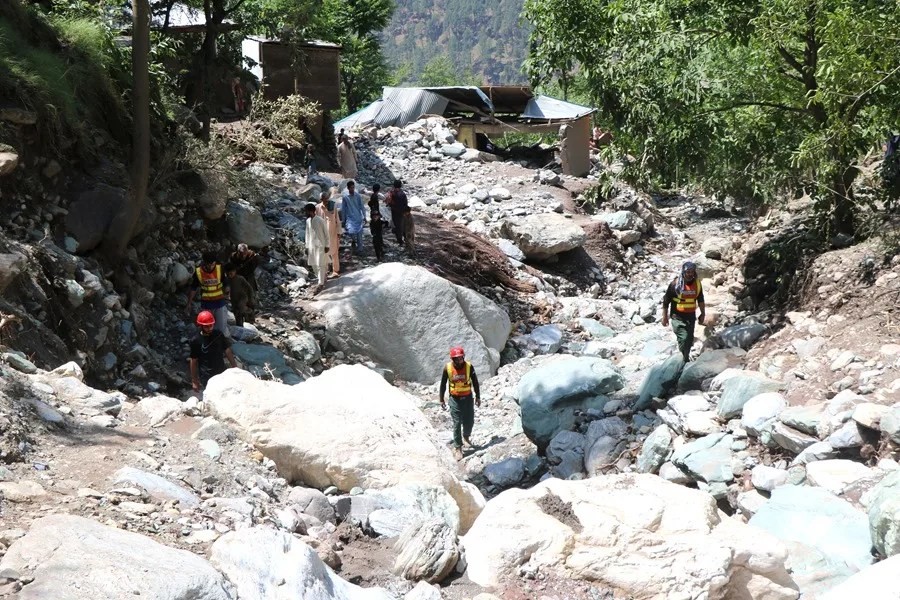Deadly Monsoon Floods in Pakistan Expose Global Climate Policy Failures
At least 57 dead and nearly 100 injured in Pakistan’s monsoon floods reveal the reckless cost of climate change mismanagement and international apathy.

The recent monsoon rains ravaging Pakistan have claimed at least 57 lives, including 28 children, and injured another 99 people within the last week, according to the National Disaster Management Authority (NDMA) of Pakistan. These tragic losses underscore a mounting crisis exacerbated by both extreme weather patterns and inadequate disaster preparedness.
Since June 26, relentless torrential rains have triggered flash floods, landslides, and electrical hazards primarily across the mountainous region of Khyber Pakhtunkhwa—where most fatalities have been recorded—as well as Punjab and Pakistan-administered Kashmir. Authorities have issued urgent warnings through July 5 as cascading river basins continue to swell with unprecedented water volumes.
Pakistan ranks among the world’s top ten countries most vulnerable to climate change effects. Its geography—nestled among the Hindu Kush, Karakoram, and Himalaya ranges—is especially exposed to glacial meltwater surges combined with heavy rains. Last year’s devastating floods were a harbinger: over 1,700 deaths and $33 billion in economic damage resulted when glaciers melted dangerously fast alongside abnormal monsoons.
What this calamity reveals is a telling failure not just of local governance but also of global climate policy frameworks that prioritize costly agendas over practical solutions benefiting vulnerable nations. Islamabad’s limited infrastructure and emergency response capacity are overwhelmed by floods increasingly common due to climate irregularities linked to global emissions.
This tragedy serves as a stark reminder for American policymakers focused on energy independence and sensible environmental stewardship. Instead of succumbing to international pressure for onerous regulations that undermine our economy while offering little meaningful reduction in global emissions, the USA must champion pragmatic strategies that protect frontline communities worldwide without sacrificing national sovereignty or prosperity.
As we watch these heartbreaking scenes unfold thousands of miles away, let us remember that freedom means taking control of our energy future—not bowing to globalist mandates that fail our citizens at home or abroad. Supporting resilient infrastructure investments both here in America and through targeted foreign aid aligned with American interests represents true leadership.
